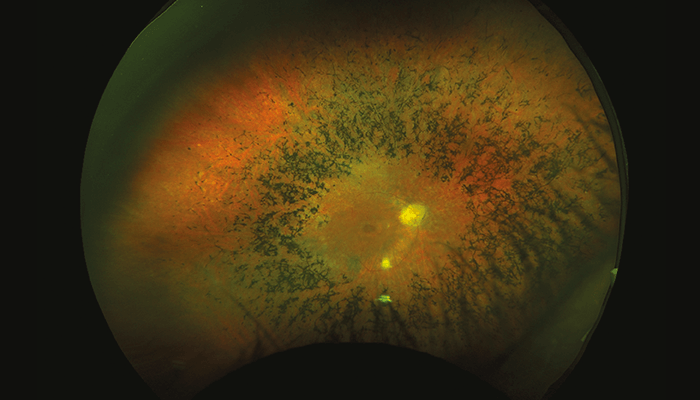
Moving across the world from Gaza to the United States, a new documentary from the UK’s British Broadcasting Corporation (BBC) follows an investigative journalist with retinitis pigmentosa (RP) as they explore a series of pseudo therapies. The film, called Blind Faith, draws attention to a fraudulent – and even dangerous – global issue, but we wanted to sneak behind the curtain, so we met with journalist and presenter of the film, Ramadan Younes – shared below, as well as genetic ophthalmology expert Mariya Moosajee, which you can read in Part II here.
First, would you mind sharing your personal experience with RP?
As a child, my mother noticed I had a problem with my night vision, and so she took me to see a local ophthalmologist in Cairo, who told her privately that I would eventually lose my vision. At the age of 22, I felt a significant deterioration in my sight and decided to see an ophthalmologist. They told me I have a disease known as retinitis pigmentosa. It was devastating news to receive.
My vision, particularly central vision, has deteriorated over the last decade, to the point where I can no longer read as I used to.
Was there a specific moment or experience that prompted you to initiate your investigation for the BBC?
After discovering that my disease can lead to blindness, I chose to explore treatment options. I traveled to China to have a surgical procedure that would apparently increase blood flow to the retina, subsequently aiding in the restoration of my vision.
Unfortunately (and with hindsight unsurprisingly), this treatment did not work and my eyesight continued to deteriorate – in fact, the treatment didn’t offer the slightest sign of improvement. My experience compelled me to speak with many other RP patients who have shared similar tales of woe. In short, I decided to embark upon this investigation to protect other patients from falling into the same trap that I (and many others) succumbed to – and to expose those who sell false hope to vulnerable people.
How widespread are these pseudo-treatments?
It is a very common issue, with clinics all over the world offering bogus treatments that lack even a shred of medical or scientific evidence. The purveyors of these treatments prey on the desperation – and hope – of patients who are willing to undergo unproven procedures because of the poor prognosis. I have personally spoken to countless patients who have been left in physical and emotional pain after discovering that these treatments were only developed to extract as much money as possible.
Patients should be aware that there is only a single treatment that has been scientifically and medically proven. It is called Luxturna and it is only suitable for patients with mutations in the RPE65 gene. Therefore, patients shouldn’t invest resources – or belief or hope – into other treatments, as they undoubtedly lack the clinical evidence to prove their efficacy and could ultimately be dangerous and detrimental.
What do you think needs to change?
To support people with such diseases, we need to offer a holistic approach that addresses their psychological and emotional needs as a result of their diagnosis. We need increased accessibility and opportunities in their workplace and education systems. In addition, we should involve them in different social and sporting events, which can improve confidence and remove the feelings of loneliness or abandonment that can come from dealing with such a disease.
To protect the RP population, we need to raise awareness – guided and advised by reputable ophthalmologists – not only of unproven treatments but also of the current clinical trials that are showing promising results. We can help people build patience for trial approval and validation, but also offer justified but realistic hope that new (and effective) treatments will come. Media plays a vital role in raising the necessary awareness – and that is what we have strived to do through the making of this documentary.
RP patients need to be aware of the traps set by institutions falsely claiming to have effective treatment options. They do this purely to obtain your money and hope, and are far from having your best interests at heart. Sharing the truth we have unveiled in this documentary will save countless people from the heartache of having their hopes falsely squandered by individuals with ulterior motives.
What would you like the world’s regulatory bodies to do in the wake of your reporting?
I would like these clinics to be held accountable for their actions to the full extent of the law.
